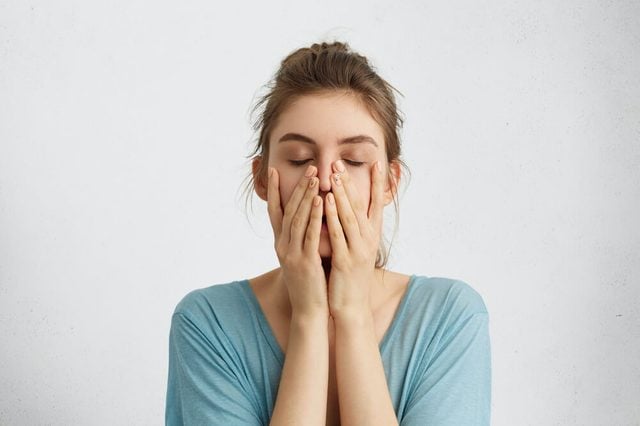
Skin and stress don’t pair well
Think of them at war, here. When you’re stressed out, your skin will only get worse, and whether that means triggering a pre-existing skin condition or causing an acne flareup, it’s bad news for your face. But, what exactly does stress do to wreak havoc on your skin? We’ve got a few experts to weigh in on what’s going on, on and beneath, the surface of your skin that’s causing “pizza face.” Time to fix those blotches, stat.
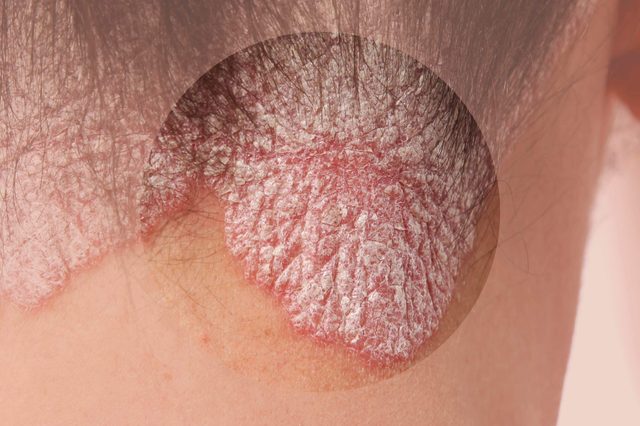
You have psoriasis
Psoriasis is one skin condition that may get worse with stress, and you’ll experience red, itchy, scaly skin. Stressful stimuli and life events may lead to a psoriasis flare in those that deal with the chronic skin condition, says Nesochi Okeke-Igbokwe, MD, internist and health and wellness expert. And, it’s worth noting it’s different than other skin conditions like rosacea. “Finding coping strategies to deal with stress is absolutely essential in helping to manage psoriasis,” she says. Meditation is just one example of a calming activity to engage in that can help with the management of your stress levels. And, “studies have linked mindfulness meditation with stress reduction and faster improvement of skin symptoms in those with psoriasis,” she adds. Here’s a skin-care routine you can follow for psoriasis.
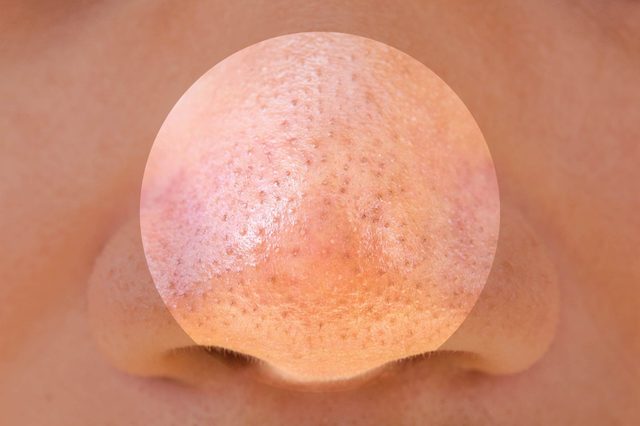
You’re pigging out
Though not a skin condition, if you’re stressed, you’re likely to start picking the wrong foods for your diet, and eating junk food all day can lead to worsened skin. “It’s well known through studies that stress leads to individuals eating lower-quality, high-sugar ‘treats,'” says Julie Upton MS, RD. And, these foods are also linked directly to breakouts and other skin issues, she adds. Here are some foods that cause acne—and some that can help.
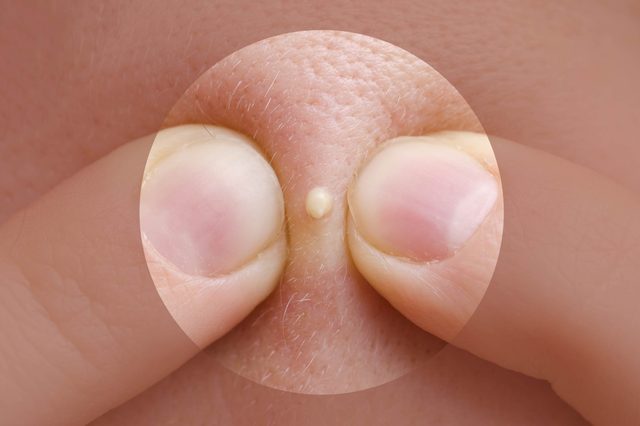
You’re a pimple popper
If you’re prone to acne, stress will only make it worse. And, you should never pop certain pimples, as they can lead to infections or scars. According to celebrity dermatologist, Ava Shamban, MD: “In the case of acne, cortisol acts like an androgen and you break out like a boy going through puberty.” To combat this, she recommends exercising regularly, getting seven to eight hours of sleep nightly, and having a good facial cleansing routine before bed. Also, reduce stress through meditation or yoga. These are the acne fighting rules everyone should memorize.
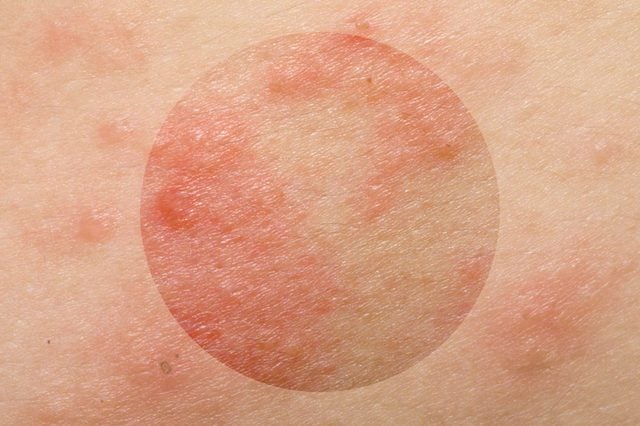
You have eczema
If you have this, you might notice red rashes and itchy skin. “Eczema or atopic dermatitis is different [than psoriasis] in that it is primarily a disruption of innate immunity, and it’s also adversely affected by stress,” says Dr. Shamban. “When you are under stress your adrenal glands pump out cortisol. This hormone adversely affects every organ in the body if it is continually elevated,” she says. Skin will become irritated and inflamed, and you might even notice oozing blisters or plaque-like skin. These are some more facts about eczema you should know.
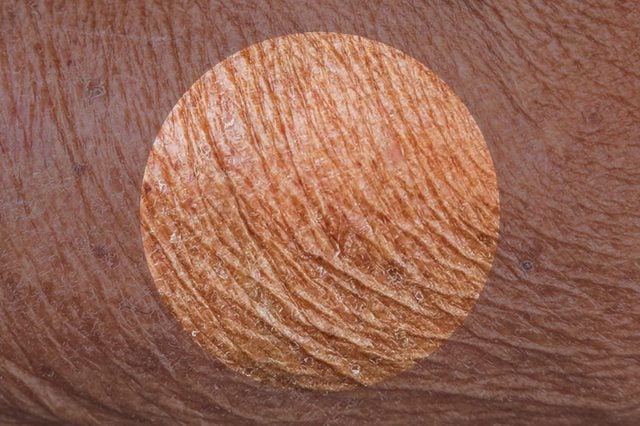
Your skin is simply aging
You can’t really help this, but you can slow it down—here’s the right skin care for your age. David Lortscher, MD, dermatologist and founder of Curology, explains stress could be a major factor in accelerating wrinkles. “While the exact mechanism of how stress impacts skin aging is still unclear, recent research suggest possible pathways that might contribute to skin aging. Epinephrine, norepinephrine and cortisol, which are released during stress, were found to increase DNA damage, and interfere with DNA repair,” he says. Getting the right products could help.
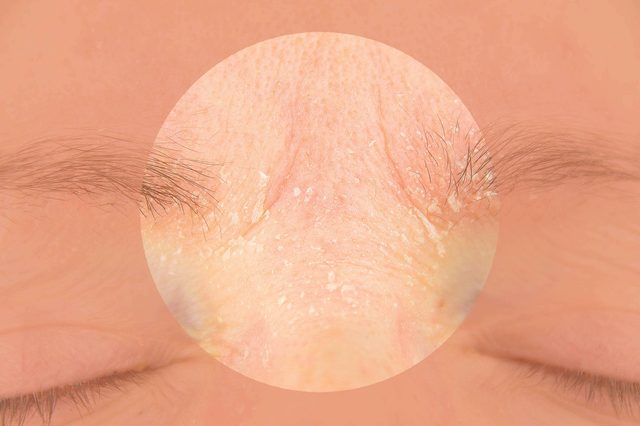
You have facial dandruff
Yikes, sounds gross. And, it is. “Stress is one of the aggravating factors of seborrheic dermatitis, and while the cause of seborrheic dermatitis is not completely clear, it may involve an inflammatory reaction to pityrosporum, also known as malassezia, a type of fungus naturally present on the skin surface,” says Dr. Lortscher. “While pityrosporum is present on the skin of almost all humans, only one-half to three-quarters of people will develop dandruff or seborrheic dermatitis—so some people are just more susceptible,” he says. And, here are a few reasons you might have an itchy scalp to begin with.
